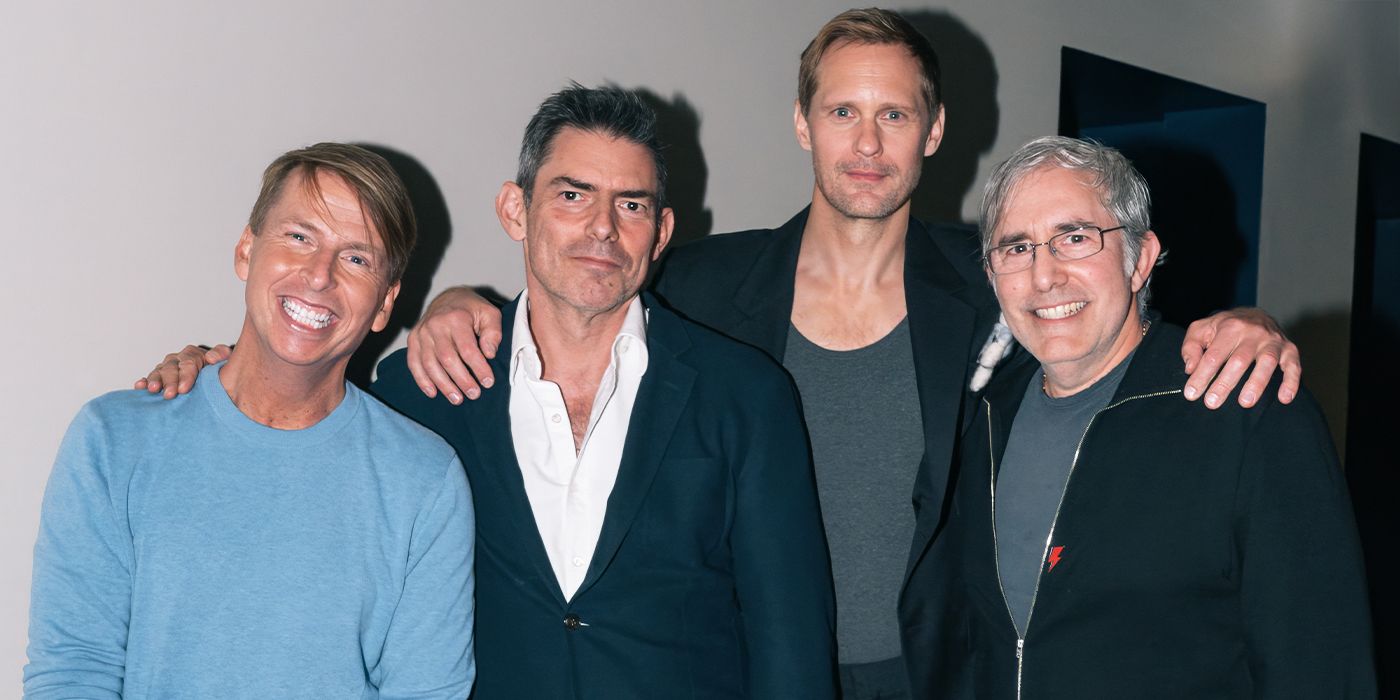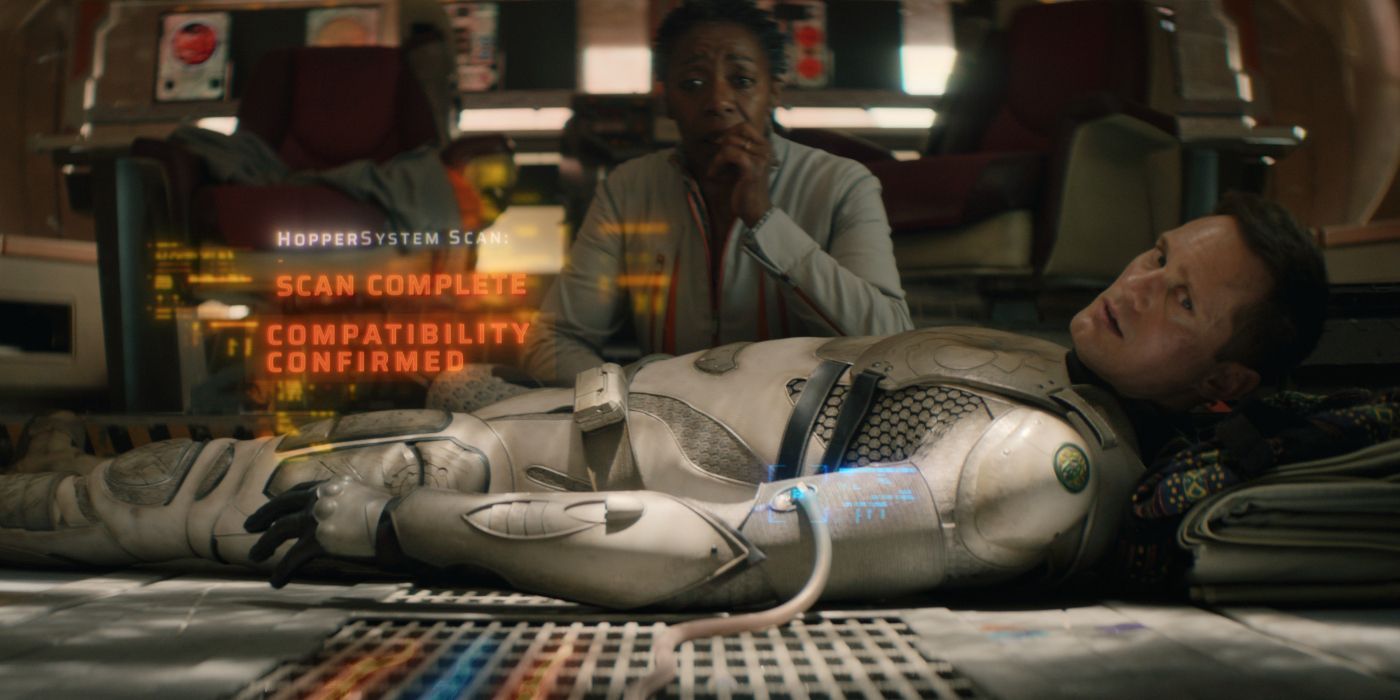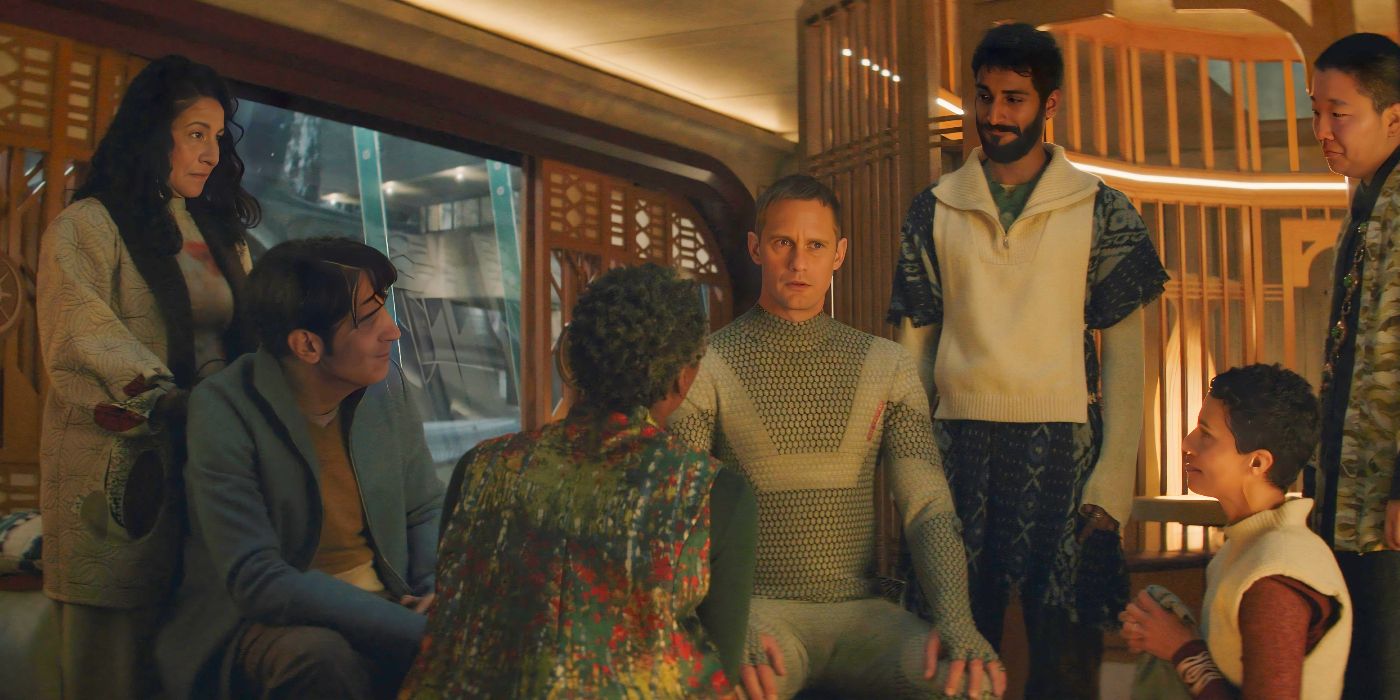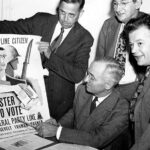Editor’s note: The below interview contains spoilers for the Murderbot finale.
Over the course of Apple TV+’s Murderbot, its lead character (charmingly played by Alexander Skarsgård) has made no secret of its disdain for humanity. Despite hacking the governor module that forces it to obey any command its clients may give, this Security Unit, or “SecUnit,” ultimately resigns itself to doing what it was programmed to do — protecting a small group of humans from Preservation Alliance — while binge-watching episodes of its favorite long-running series, The Rise and Fall of Sanctuary Moon. When a seemingly innocuous mission quickly goes sideways for the PresAux team, Murderbot finds itself in the unexpected position of becoming attached to its clients while also uncovering a bigger conspiracy in the process. The season’s penultimate episode leaves Murderbot’s fate hanging in the balance, but the finale reveals the PresAux’s team going to great lengths to not only recover their friend but also restore its original memories after the SecUnit is unceremoniously wiped and reset.
Ahead of the premiere of “The Perimeter” (but before the announcement that the show had been renewed for Season 2), Collider had the opportunity to speak with the cast and creatives behind Murderbot, including Skarsgård. Over the course of the interview, which you can read below, the actor reveals how far into Martha Wells‘ original series he read both during filming and post-production, as well as which future book storyline he’s excited to get to in a second season. He also reveals the moment when Dr. Mensah (Noma Dumezweni) became Murderbot’s favorite human, the significance of that final exchange between Murderbot and Gurathin (David Dastmalchian), which scene he ruined several takes of by crying, and more.
COLLIDER: In terms of the books, did you want to read a lot of them when you were first cast, or did you try to stick to where the show was adapting?
ALEXANDER SKARSGÅRD: I tried to focus on All Systems Red, which is the first novella, because after talking to Chris and Paul [Weitz], I knew that Season 1 would be faithful to that novella in terms of the storyline, the general arc of where the character is going, and the relationships. I wanted to focus on that one in preparation for the series.
Did you ever think you’d be doing as much singing this season as Murderbot?
SKARSGÅRD: [Laughs] Definitely not. I think that was some kind of spontaneous decision that we came up with on the fly. That is definitely not something I anticipated, but we foolishly thought it made sense in the moment.
Alexander Skarsgård Explains When Murderbot Starts Thinking of Mensah as Its “Favorite Human”
“That’s where that foundation is laid.”
It does! When Mensah and Murderbot are both stuck on the hopper together, and Mensah is having a panic attack, Murderbot puts on one of its favorite episodes [of Sanctuary Moon]. It’s such a lovely moment for their relationship. Given what we hear Murderbot say about her in the finale, that she’s its favorite human, do you feel like that hopper scene is the moment where it starts thinking of her in those terms, or does it only have that revelation by the end?
SKARSGÅRD: It’s a pivotal moment because it’s the first time, up until that point… they’ve had short interactions, just two of them, but it’s mostly through the whole team. It’s usually Murderbot versus the whole group. Mensah’s obviously the leader of the team and also the one who reaches out the most to Murderbot and tries to get Murderbot involved in the group, but still, it feels very much like a group dynamic. There are short moments when Mensah walks into Murderbot’s regen chamber, but it was really lovely to have a full episode together, as much as I love the rest of the cast, to really go deeper between Murderbot and Mensah and their relationship.
I didn’t feel like Murderbot came out of that thinking, “Oh man, this is incredible. I love her,” but it definitely stirred something in Murderbot, and set Murderbot on a new trajectory to where we land in Episode 10 — when Murderbot, at the end of it, says Mensah’s its favorite human, which is a huge thing for Murderbot to say. That’s where that foundation is laid. That was a really lovely couple of days to shoot. It was super fun. I also really love those scenes. There’s a lot going on in them. They’re funny, and they’re sweet, and they’re touching.
The finale, especially in the beginning, emphasizes how little most people even think about these SecUnits, even those who are responsible for making them. It’s very sobering seeing the treatment that Murderbot is on the receiving end of before Gurathin helps get its memories back. There’s a lot that goes down in the midst of all of this. What do you feel like Murderbot’s feelings are about “the Company” and its place in everything?
SKARSGÅRD: The relationship between Gurathin and Murderbot has been a very antagonistic relationship, but there’s also a level of respect that’s building over the course of the season. What Gurathin is doing, Murderbot learns and starts to appreciate that, and it’s protecting the other members of the team in a similar way. Not a physical way, it was still protecting the team members the way Murderbot is assigned to protect them, but it’s doing it willingly. As annoying as Gurathin can be to Murderbot — not only annoying, but also, obviously, before they all found out that Murderbot had hacked its governing module, Gurathin has the potential for real danger. But at the end, Gurathin is committing such an incredibly selfless act, the way it goes out and downloads all of Murderbot’s data, basically Murderbot’s personality. The risk he’s putting himself at by doing that is extraordinarily generous.
In terms of the Company, there’s obviously disdain. Murderbot feels it just wants to get away from everything. It doesn’t really know what it wants to do or where it wants to go, but it definitely knows that it wants to get far away from the Corporation, because it knows that to the corporation, Murderbot is not a sentient being, it’s a piece of equipment, and if they get their hands on Murderbot, they’re just gonna wipe its memory, like you see in Episode 10, and put it to work again. So, it just wants to start fresh and get away, and figure out who it is and what it wants. It doesn’t really know that. I quite enjoyed that Murderbot didn’t end up having answers to all the questions or knowing exactly what it wants. It’s more messy and complicated than that. But it definitely knows that it needs to find its own path and make its own decisions, to make its own mistakes, and not have the Corporation or anyone tell it who it is or what it wants.
36:50

Related
“I Haven’t Done It Since ‘True Blood'”: Alexander Skarsgård Broke His Own Rules for Apple TV+’s Critically Acclaimed ‘Murderbot’
The creators, Skarsgård, and Jack McBrayer take us behind the scenes for the making of ‘Murderbot’ Season 1 in this exclusive Q&A.
How ‘Murderbot’s Emotional “Check the Perimeter” Scene Changed From the Original Version
“I thought it could be interesting to kind of strip away most of the dialogue…”
The scene that struck me in the finale is the last conversation that you and David [Dastmalchian] have in that episode, where Murderbot is trying to sneak out while the others are asleep. Murderbot says it needs to check the perimeter, and there’s that moment of understanding where both of you acknowledge that it means something else. You also make direct eye contact with him in the scene. What did the two of you want to emphasize about how their dynamic has evolved to this point?
SKARSGÅRD: The first draft of that episode, it was way more verbose, that scene. Murderbot explained to Gurathin more about its predicament, or how it felt and what it wanted, or what it didn’t want, or that it wanted to find out what it wanted — basically, the stuff that’s in the voiceover towards the very end of the episode. But then, because we’ve had this perimeter thing throughout the entire season of Murderbot always using that as an excuse to get away, I thought it could be interesting to kind of strip away most of the dialogue and just have Murderbot say that, but in a profound way. There is a connection at this point where Murderbot doesn’t have to explain itself, and that’s what I liked about trying a version where we didn’t have a monologue, or Murderbot going on explaining to Gurathin why it needs to leave. I think it says so much about their connection and their friendship that all Murderbot has to say is, “I need to check the perimeter,” and Gurathin knows exactly the implications of that. That means, “This is something I need to do. I need to leave, and I need to figure out who I am and what I want in life.”
I was quite excited when we tried that version, when we trimmed all the fat of the dialogue down to the bare bones of that. David is such a phenomenal actor that it all lands in his face. You can see that in David’s eyes, the implication, that Gurathin understands exactly what that means. It was a beautiful and horrible scene to shoot. It was also the last scene we shot together. They were kind enough to put that at the very, very end. Sometimes, you shoot things out of order, and sometimes you shoot things within episodes out of order, but the fact that we have that as our big goodbye scene, so when I look at Mensah and all the others sleeping, it’s the last time I look at them on camera. We had a fun wrap party, but it was a goodbye on camera, as well.
To have that scene with David and to say, “I need to check the perimeter,” just felt very emotional because we all became very close over the course of those six months of shooting the season. Obviously, when you do a show, you don’t know if you’re going to get picked up for a second season, so you don’t know if you’re going to have an opportunity to come back and do it all again, or if this really is goodbye. So, it was a very emotionally charged moment. Murderbot obviously doesn’t cry, but I was really struggling. Often, as an actor, you try to get those tears, but this is very much the opposite, where I was desperately trying to keep them in. I blew a couple of takes because I started crying — because it really got to me, that moment with David. It really moved me.
Provided we hear good news about a Season 2, there are many more books to adapt. I’m crossing my fingers that we can look forward to seeing Murderbot in the future. Thank you so much for your time today.
SKARSGÅRD: Oh, my pleasure. I really enjoyed talking to you. I’m so happy to hear you enjoyed the show.
I watched the season, and then I immediately picked up All Systems Red, so now I’ve actually read a little bit ahead in the books. It honestly just makes me even more excited about the potential that the show has to adapt Murderbot’s continuing journey.
SKARSGÅRD: When we were shooting, I tried to focus on the first novella, All Systems Red, to not get confused, but since we’ve finished it, I’ve also caught up a little bit. The storyline with ART and all that, it’s just a lot of great, great stuff coming up. So, hopefully we’ll get a chance to explore some more adventures.











